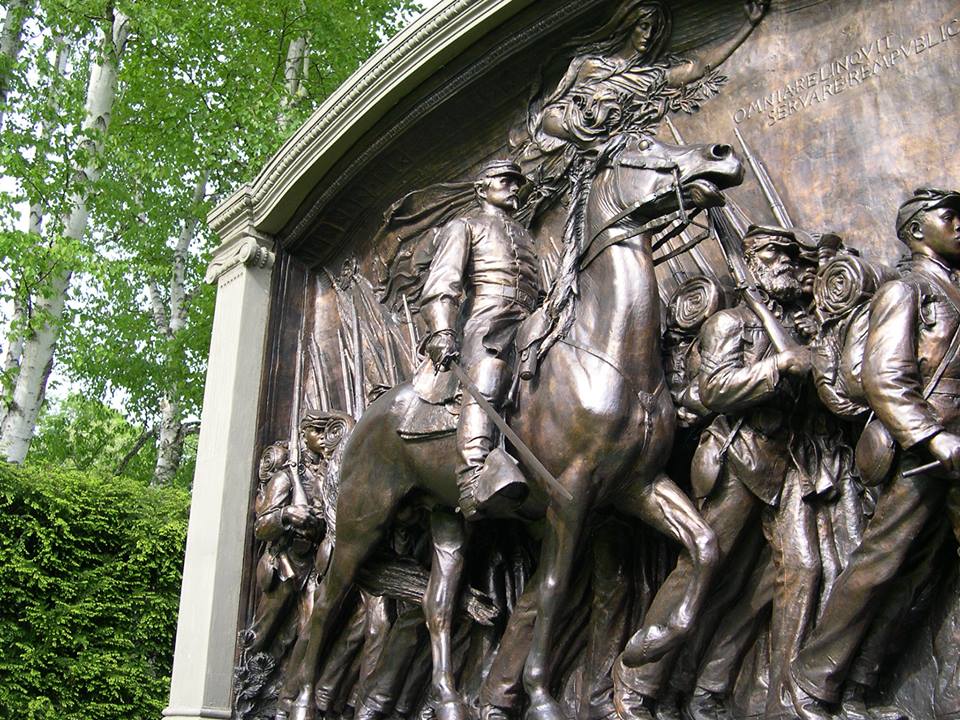
Bostonians recently celebrated the 150th anniversary of the battle of Fort Wagner, S.C. On July 18, 1863, the 54th Massachusetts Volunteer Regiment attacked over the ramparts of the fort in a suicidal effort to weaken the Confederate defenses around Charleston. This was the first time that a black regiment had fought for the U.S. A major value of history is to enable people to learn from past acts. It appears that the Massachusetts 54th has established a standard of conduct too great for current generations to duplicate. How many people today are willing to sacrifice the comfort of their own lives to benefit others? How many are willing to persevere, even when the going gets rough? How many will forfeit compensation in order to preserve their dignity and reputation?
African Americans should be especially mindful of the legacy of the 54th that was portrayed in the movie “Glory” starring Denzel Washington. Black volunteers from Greater Boston demonstrated extraordinary character and earned the respect of the whole community.
They willingly went to war to rescue their fellow blacks who were enslaved in the South. When they realized that they were sent on a suicidal mission by bigoted commanders who resented their presence, they nonetheless fought with consummate valor and one of their soldiers even won the Congressional Medal of Honor.
Another achievement of equal importance to their battlefront heroics is the refusal of the men to accept a cut in pay due a soldier to that of a laborer. Rather than accept this demeaning arrangement, they fought as volunteers. This noble gesture placed a financial burden on their families, but the dignity of Boston’s black community remained intact.
Wealthy Bostonians were so impressed with the performance of the 54th that they engaged the services of sculptor August St. Gaudens to design a monument to the regiment. That monument still stands today on Beacon Street opposite the State House, and is the only major monument to black soldiers who fought in the Civil War.
If somehow the spirit of the 54th were abroad in black communities, then many urban problems would automatically be resolved. There would be little crime and violence and neighbors would be concerned about one another. Also, people would be more critical about government benefit payments that impose changes in the family structure.
Today’s combat does not require organization into platoons, companies and regiments. The battle is to build political power and the structure is precinct, ward and political action committees. Black soldiers in the Civil War faced cannon fusillades and musket fire. This generation has to cope with nothing more dangerous than frustration and fatigue.
Still much is at stake and it would be a disgrace and a repudiation of the honor secured by the sacrifice of an earlier generation for people to be unwilling now to join the battle.


![Banner [Virtual] Art Gallery](https://baystatebanner.com/wp-content/uploads/2024/04/Cagen-Luse_Men-at-store-e1713991226112-150x150.jpg)



